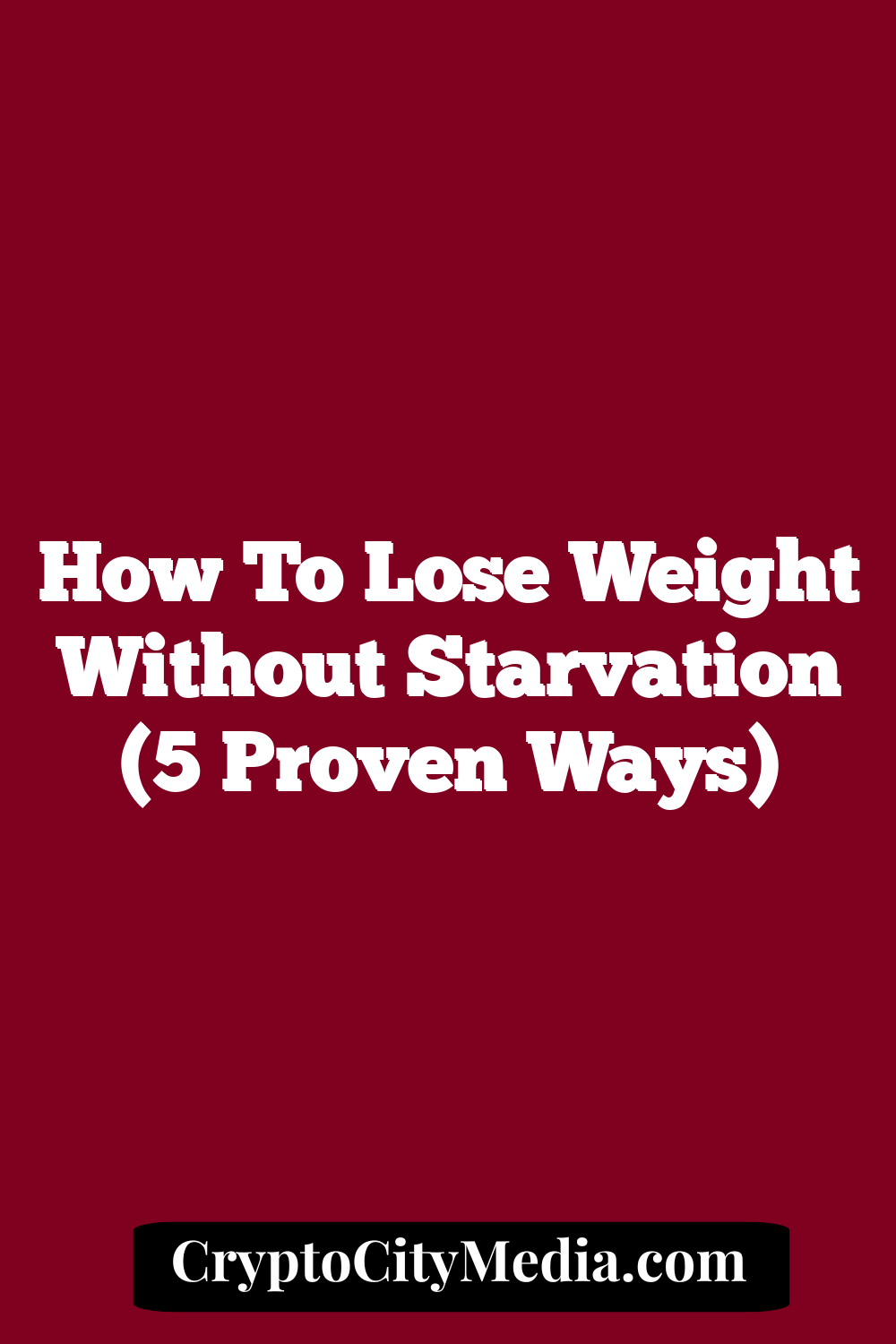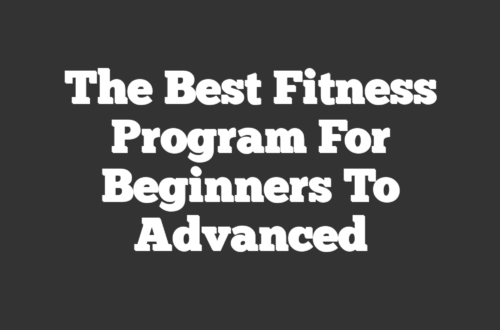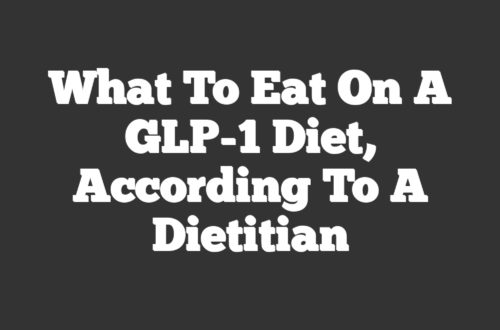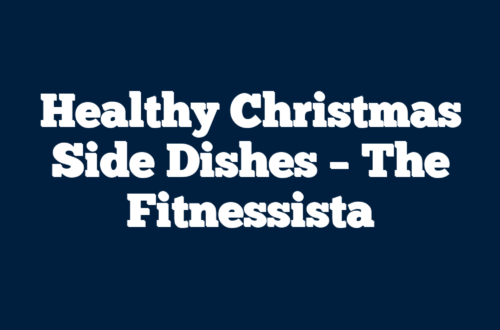
If you want to lose weight without starvation, there are many ways you can do this successfully. In fact, if you follow the steps here, you will probably feel more full and lose more weight. The foods you can eat while losing weight will not be boring, taste bad or be difficult to cook or find.
You’ve probably seen more fad diets on the internet than I can count right now. Truth is, some work and some don’t. Some will work for a few months, others will keep the weight off forever. Some diets have a lot of restrictions, other diets don’t. And, some diets encourage a starvation mode that is the most harmful of all.
Let this guide help you find the best way to lose weight for you.
The best and most effective method of losing weight is by transitioning to healthy meals and exercising. Even a plan like daily walking for weight loss will make a huge difference in combination with a healthy diet.
While some diets and routine changes may leave you dealing with some hunger pains, starving yourself is never the right choice. This is why certain diets that boast of fast weight loss results and promote cutting out entire meals are not great ways to lose weight.
Fad diets or diets that restrict too many calories may produce results, but they are not sustainable in the long term. Sustainable programs or methods like carb cycling, intermittent fasting, keto diet and counting macros are some of the long-term successful weight loss programs.
Is It Possible to Lose Weight Without Starvation?
It is absolutely possible to lose weight without starvation, and in fact, the diets which promote you to starve yourself are be far less effective (especially long-term) than those that require you to evaluate and change your lifestyle habits.
Losing weight is a journey, and it should be one that you do in a healthy way. You can accomplish weight loss without sacrificing meals by meal prepping, re-portioning your meals, cutting calories, and making healthy alternatives to fast foods.
Do I Need to Fast to Lose Weight?
You do not need to fast to lose weight, but there are a lot of individuals who use intermittent fasting for weight loss as a method to help curb appetites.
This can be an effective way to burn fat and even reduce inflammation, reduce daily calories without feeling so restricted in choices to eat.
14-Day Intermittent Fasting Meal Plan: 1500 Calories
This is the best meal plan for intermittent fasting! Everything is planned for you – macros, calories, meals, shopping lists…all you have to do is grab the groceries. Don’t waste any more time, get this time saver and start losing weight now!
Fasting during the Intermittent Fasting window is mostly during sleep, and you should stay hydrated while awake to prevent headaches and some of the hunger. It’s also a good idea to gradually increase fasting window to the goal time of typically a 16 hour fast.
Individuals with health problems and very young or elderly should not utilize this type of dieting as it can be quite a shock to the body. It’s important to consult your doctor before starting IF or any diet plan.
Fasting for weight loss is definitely possible, but much like the other options, we mentioned it may not be one that is sustainable for the large majority. So make sure to have a sustainable plan in place once you stop an Intermittent Fasting program.
Like any weight loss program, you’ll need to stick with a clean eating diet or you’ll eventually gain the weight back that you’ve lost.
Healthy eating should be considered a lifestyle, not short-term.
It’s okay to only do Intermittent Fasting for a few weeks or months while jumpstarting a weight loss journey.
How To Lose Weight Without starving
There are many different ways you can diet without starving yourself, but all of the best strategies include changing your eating habits to healthier ones. Changing your eating doesn’t mean you have to eat less, in fact, if you have more low-calorie snacks throughout the day, it helps to promote feelings of fullness and helps to prevent overeating at meals.
Healthier foods are often more satiating than “junk food” and while total calories will be less, it will feel like you’re eating more food!
Starving yourself can have the opposite effect where you are so hungry that you eat over more than the amount you had planned to and essentially overfill your stomach. The best ways to lose weight are to continue to eat regularly scheduled meals, replace high-calorie foods with lower-calorie options, eat a lot of protein and high fiber foods, and drink lots of water!
Water is a great tool to help with weight loss and should be included in a healthy lifestyle. Increasing your water (staying hydrated appropriately) intake promotes other healthy bodily functions, along with assisting in getting a feeling of fullness before meals if you have a history of overeating.
Eat More Protein for Weight Loss
Protein is an important part of our diet as it promotes a feeling of fullness and can be an excellent replacement for high-calorie and high carbohydrate meals.
Protein also promotes muscle growth and can be essential to keeping you healthy if you are cutting out calories, which are still needed for your body to function.
Supplementing with protein powder, or meal replacement shakes can be a beneficial way to lose weight without feeling hungry.
If you are working out or exercising, you’re missing out on some serious weight loss, muscle toning and metabolism boosts if you aren’t drinking this post-workout shake within 30 min of ending your exercise.
Proteins also help you feel full longer and curb your appetite by increasing hormones that make your body recognize that it is full and by decreasing a hormone that makes you feel hungry.
So, protein shakes are one of the best choices of food to prevent you from feeling hungry without loading up on unnecessary calories.
Eat Healthy Fats
You may think that going on a diet means completely cutting out fats, but fats are a necessary part of the food pyramid. So, replacing unhealthy fats with healthy alternatives helps to create diets that can be utilized for the long term.
Fat intake is based on total calories eaten and can vary with your specific diet and your body mass in its current state. Fats have gotten a bad rap, but healthy unsaturated fats are necessary for our body to be healthy and operate optimally.
Saturated fats and trans fats are regarded as unhealthy fats, and along with the risk of weight gain, they also increase health risks such as heart disease.
Tracking macros and calories will be important to having the right balance of fats in your daily diet. Stick to as many whole foods and clean eating as possible.
Stay Hydrated
As we mentioned before, drinking water and staying hydrated is a great way to promote healthy eating and to help your body perform regular functions. Drinking water promotes feelings of satiety and aids in the prevention of overeating if you drink a glass before a meal.
Water is also absent of calories, so it is a great way to replace higher calorie-containing drink options that we may be consuming.
Water can stretch the stomach and make you feel full, but water is also processed and excreted through the body quickly so, you want to maintain your hydration throughout the day as well as before meals.
If you start to feel hungry before a scheduled meal time, then drinking a glass of water and having a low-calorie snack will give you the push you need to make it to your next meal without feeling hungry and lethargic.
This method will also help you to eat less at your next meal because you won’t have starved yourself.
Meal plans
Meal plan is another way to start a healthy diet and begin a weight loss journey that won’t leave you starving and constantly hungry!
Often the meal plans come with everything you need. Recipes, shopping lists, some plans come with daily emails, full how-to guides and more.
Save yourself a lot of time and headache by having meals planned for you.
More often than not, it’s food that derails a weight loss plan. If you have a well-constructed plan, that obstacle is removed!
6 Week Weight Loss Program
Looking to shed some pounds and transform your body? Look no further than the Fit Found Me 6 Week Weight Loss Program! This comprehensive program has everything you need to get in shape and feel great, from delicious meal plans and recipes to challenging workouts and daily email motivation and support.
With our expertly crafted meal plans and recipes, you’ll never have to worry about what to eat again. Our delicious and nutritious options are designed to help you lose weight and feel satisfied, all while enjoying the foods you love. And with our convenient shopping lists and meal prep tips, sticking to your healthy eating goals has never been easier.
But it’s not just about what you eat – it’s also about how you move! That’s why our program includes challenging workouts that will help you tone your body and burn calories. Whether you prefer strength training, cardio, or a combination of both, we’ve got you covered.
And to keep you motivated and on track, our program includes daily email support. Whether you need a pep talk, a bit of advice, or just someone to cheer you on, we’re here to help.
So what are you waiting for? Join the thousands of satisfied customers who have transformed their bodies and their lives with the Fit Found Me 6 Week Weight Loss Program. With our fun but professional and proven track record, you can trust that you’re making a smart investment in your health and happiness. Order now and get ready to discover the best version of yourself!
Eat on a Schedule
There are plans that suggest to eat on a schedule to keep metabolism boosted and feeling full. Eating at regular times will also prevent getting too hungry and grabbing food such as junk food or fast food. The goal is to lose weight without starvation, but it’s important to stay on track.
The meal plans above can help with a schedule for eating and knowing what to eat next.
As we have discussed above, routine is key with a successful diet, and planning out your meals with meal planning kits are great steps to building a healthier routine for yourself.
This is the best way to get ahead of those feelings of hunger and to help combat them. You should schedule 3 meal times for your usual breakfast, lunch, and dinner.
Planning several low-calorie, whole food, and filling snacks throughout the day to prevent any hunger or fatigue between meals.
What Are the Best Foods to Eat To Stop Feeling Hungry When Eating Fewer Calories?
There are many food choices to prevent you from feeling hungry while you are adjusting to your reduced calorie intake and diet. Some might even be things you eat now! Eating to lose weight without starvation doesn’t have to be complicated.
Keep your fridge and pantry stocked with healthy foods. When shopping, get the majority of your food from the outer perimeter of the store. Choose the whole foods rather than processed.
Fruits and vegetables that are high in fiber but low in calories are another choices because they can promote feelings of fullness from the fiber, and they won’t make a dent in your calorie allowance for the day.
Items like avocados contain protein and fats which will give you a decreased appetite and keep you feeling satisfied for longer. Citrus fruits, especially grapefruit, contain large amounts of dietary fiber, which also promote satiety.
Should I take Supplements to Control appetite?
Supplements for weight loss can be tricky. There are plenty of junk supplements that could be harmful. Always purchase supplements through a reputable company and producer.
Some of the best supplements for women are made from whole foods and processed to preserve nutrients.
1st Phorm has a product, a Fastpack that can be very beneficial to weight loss when combined with a healthy lifestyle.
Don’t be afraid to use supplements when used properly. Remember, even vitamins are considered supplements!
Should I Ignore Hunger When Trying to Lose Weight?
No, you should not ignore hunger when trying to lose weight without starvation. Hunger is your body’s natural response to telling you it needs food, and ignoring it for long periods of time can lead to nausea, headaches, fatigue, and irritability.
Ignoring your body’s need for food can promote unhealthy habits and an overall unhealthy relationship with food. This is counterintuitive to trying to lose weight because you, the food you eat, and your perceptions of food all have to work together to form healthy meal routines and promote your weight loss to be sustained instead of fluctuating.
Be aware that often hunger can be mistaken for thirst. When you feel hunger, ask yourself how long ago and how much was eaten. Reach for water first, then decide what the best choice would be.
The key is to choose the RIGHT healthy foods.
In Summary
Figuring out how to lose weight without starvation is extremely important in order to be successful with a long-term healthy lifestyle change.
It is important to create healthy relationships with food and create routines that promote wellness and healthy habits. These are the essential building blocks to sustained weight loss.
These tips and tricks will be important on your journey to weight loss by giving you healthy food options that can reduce appetite and lessen the feelings of hunger without jeopardizing your diet and progress. You can also utilize the meal prep kits to begin to gain control over your diet and personalize it to your body mass and your needs.




